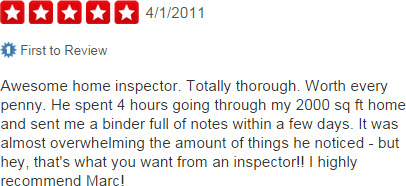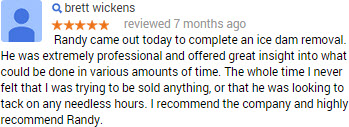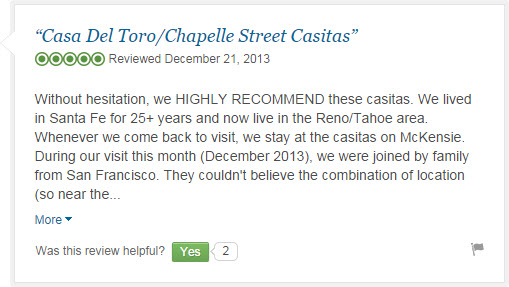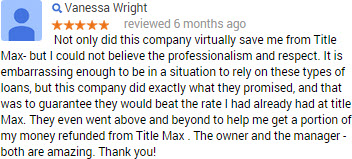Image may be NSFW.
Clik here to view.
A good review means it’s Miller Time and a bad review is just a black eye – right?
No. You’ve got a little more work to do. The better you understand your reviews, the better you understand your customers and your business. That’s how you’ll attract more of the types of customers you want.
Sounds like a mushy goal. But you can do it by crunching on your reviews until you chew into the bits of gold.
I’m talking about all the online reviews you have anywhere – from Google+ to Yelp to YellowPages to industry-specific review sites.
Don’t have many reviews yet? Great. It won’t take you long to mine them for insights.
Don’t have any reviews? No problem. Mine your competitors’ reviews.
Read all the reviews and try to answer these 25 questions:
Quick dig
1. Do customers bring up the aspects of your business (especially services) that you want them to?
Image may be NSFW.
Clik here to view.
If not, you might need to tell them, “Hey, the more detail you can go into, the better.” (As a bonus, this is a good and ethical way to get more keywords in your reviews.)
2. Which service(s) of yours do your customers review most? That might tell you which customers are most likely to write a review if you ask them to.
3. Do reviewers rave about a service that doesn’t even have its own page on your site? Create a page for it. There’s a good chance it’ll rank – especially if it’s a niche service.
4. Did they mention that you provided them an emergency service, a free estimate, or a discount? You might want to create a separate page on your site where you talk up that angle.
5. What do customers love about you? Tweak your USP if it doesn’t reflect what makes your happiest reviewers so happy. If possible, update the pages on your site and your Google Places description (and descriptions on other sites) to showcase the crisper USP.
6. Do they mention how they found you in the first place, or whether your online reviews were a selling point? Give that piñata an extra whack.
Image may be NSFW.
Clik here to view.
7. Do reviewers mention a specific person in your company? If so, what do they say?
Image may be NSFW.
Clik here to view.
Bonus points: do you have a whole page on your site about that person, where you play up his/her strengths?
8. Do customers use their full names? If not, you may want to tell them you also appreciate reviews on review sites that don’t require full names.
9. What’s the balance of men vs. women who reviewed you? Is there a balance?
Image may be NSFW.
Clik here to view.
How well does that reflect your pool of customers? If not, can you say that you’re much more likely to get reviews from women or from men?
10. Which people have profile photos (on Google+ or Yelp)? This can tell you who might be more willing to take a few minutes to write you another review on another site. Consider asking those people for a review somewhere else – especially if they’re still customers / clients / patients.
Deep dig
11. Who’s reviewed you on multiple sites? Those people are your brand-advocates – your cheerleaders. Send them a thank-you note and a smoked pheasant.
12. Leaf through your reviewers’ profiles: Are they habitual reviewers, or did they write a review just for you? This might tell you where they found you in the first place.
You never know what you might find.
13. Have your absolute-best customers reviewed you? If not, ask them (or ask again).
14. How many of your reviewers are repeat customers vs. first-timers? This will give you an idea of when customers might be most likely to act on your request.
Image may be NSFW.
Clik here to view.
This can tell you (among other morsels) roughly which stage of the relationship is the best time to ask for reviews.
15. Did any of your customers also do business with or review your competitors? What do those customers like about you and dislike about your competitors, or vice versa?
Image may be NSFW.
Clik here to view.
16. Which of your reviewers have written several reviews on Yelp – but haven’t written Yelp reviews of your business? Might be time to raise some awareness.
17. Check out the spontaneous reviews. Which sites did people review you on without your having to ask? That can tell you which sites customers find easy to use, and maybe about where they found you in the first place.
18. Who wrote more reviews that you didn’t ask for: happy customers or unhappy customers?
19. Are there any reviews that might be useful as testimonials on your site? (Consider each site’s policies when re-posting reviews. Only Yelp and Google are against it, but I’ve seen so many businesses reuse reviews as testimonials that I can’t believe Yelp and Google care too much.)
20. Is there a specific time of year that many customers reviewed you? That might be a good time to ask them in the future.
21. How old are most of your reviewers? Do younger customers seem more likely to review you, or are the older ones more likely to? Whose reviews are longer or more thoughtful?
22. What cities are your reviewers from? How visible are you in those places?
23. Are specific customers giving you the star ratings you expect from them? If you expected 5 stars from Jane and she gave you 5 stars, and you expected 3 from John and he gave you 3 stars, keep asking the Janes for reviews and figure out how you can make the Johns a little happier.
24. Whose Yelp reviews got filtered? Consider asking those people to review you somewhere else.
25. When did customers post reviews relative to when you asked them to review you? Do they tend to review you same-day, or is there an incubation period? This can tell you when’s a good time to send a follow-up request.
—
You could spend a few minutes or a few hours mining your reviews – depending on their number and on your interest. It doesn’t need to be a teeth-grinding ordeal.
Image may be NSFW.
Clik here to view.
You don’t even have to do it personally. An employee or assistant or someone in the family could do it. The ultimate is to mine your reviews, then ask someone else to, and then compare notes.
What have you learned from your reviews? Have you mined them but don’t think you’ve got any nuggets? Leave a comment!
